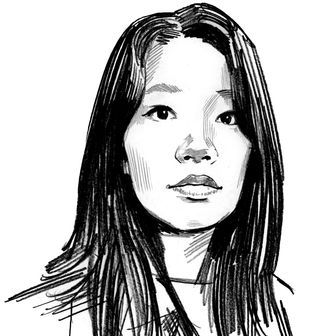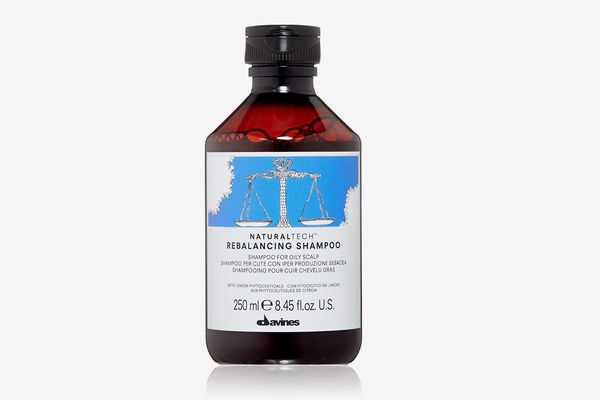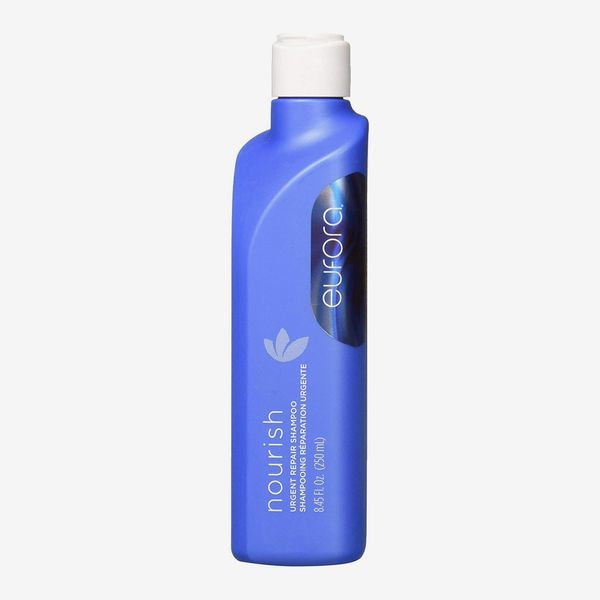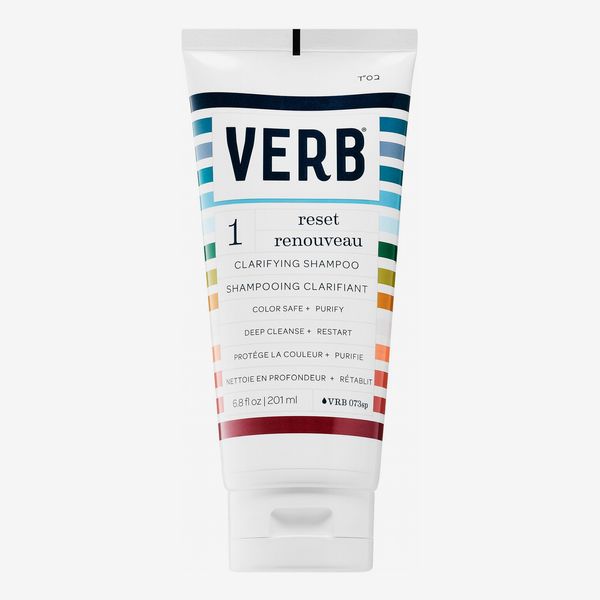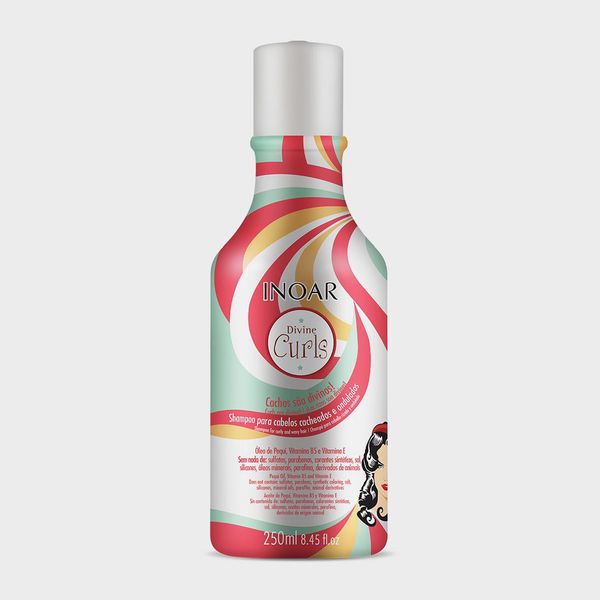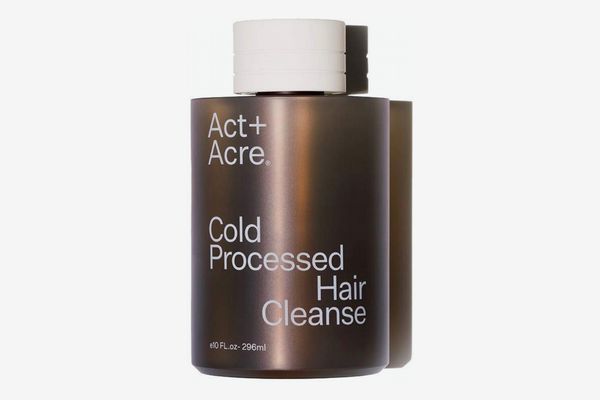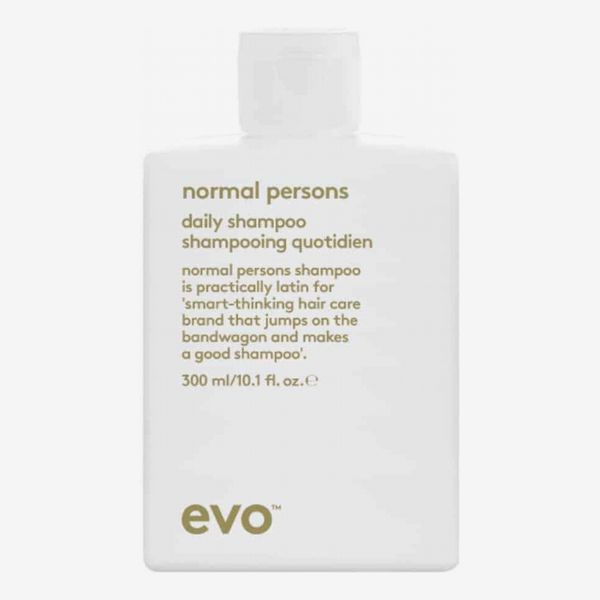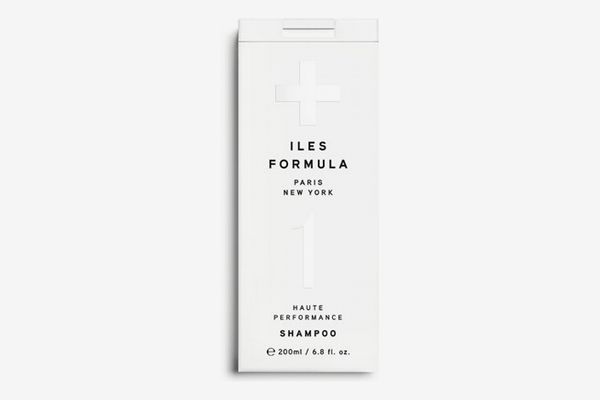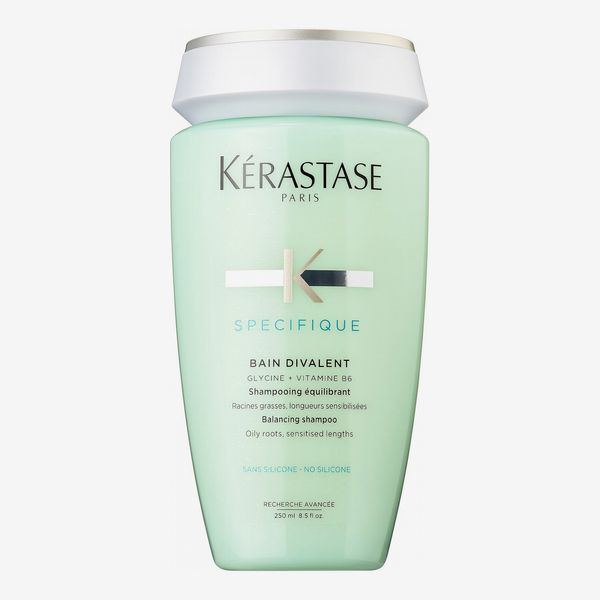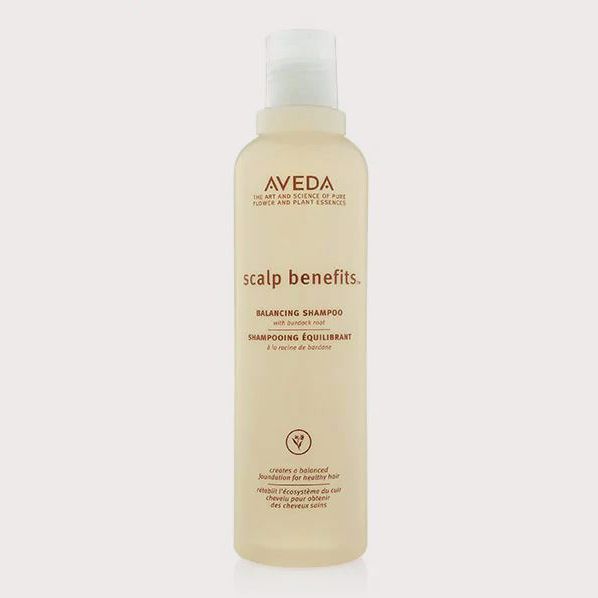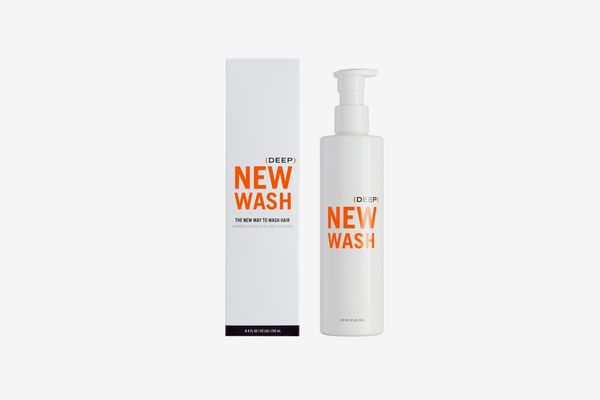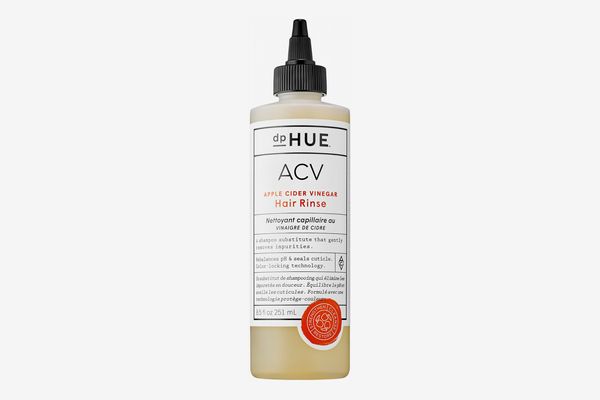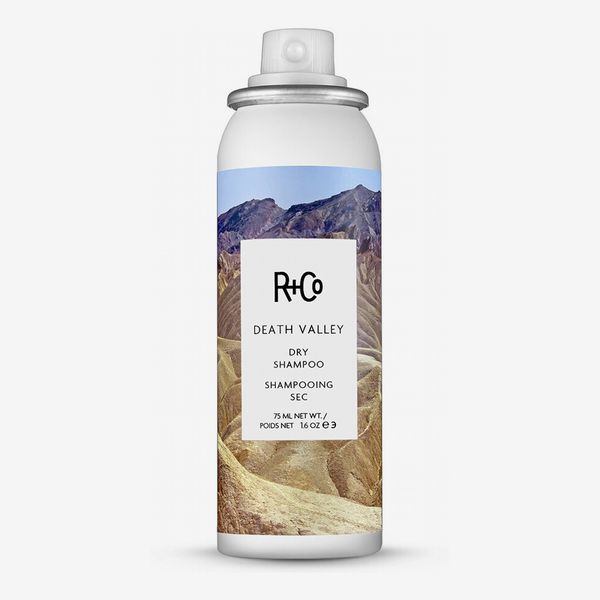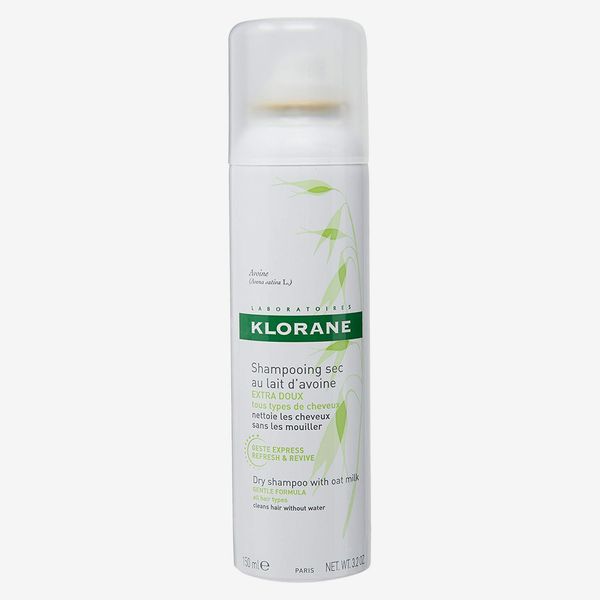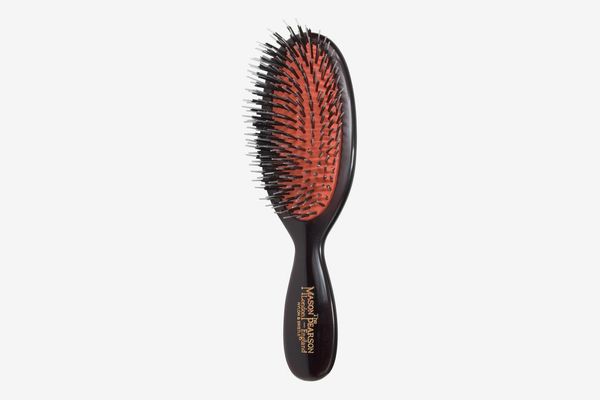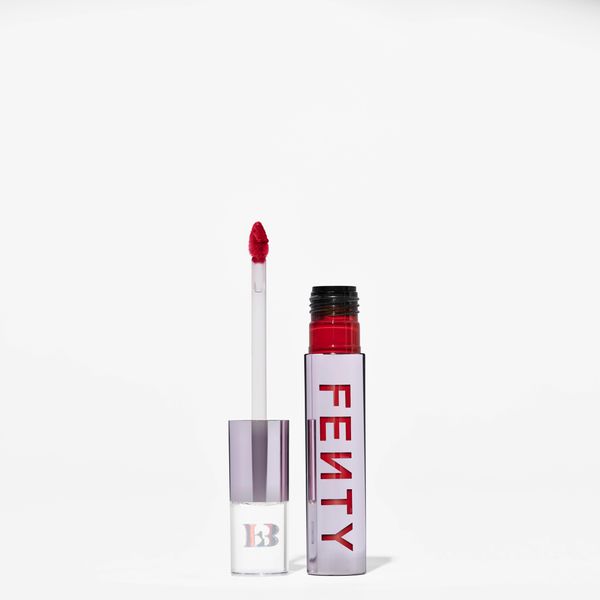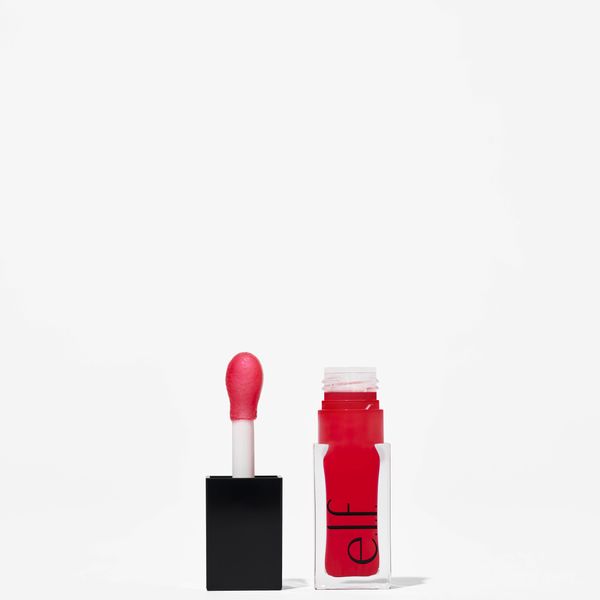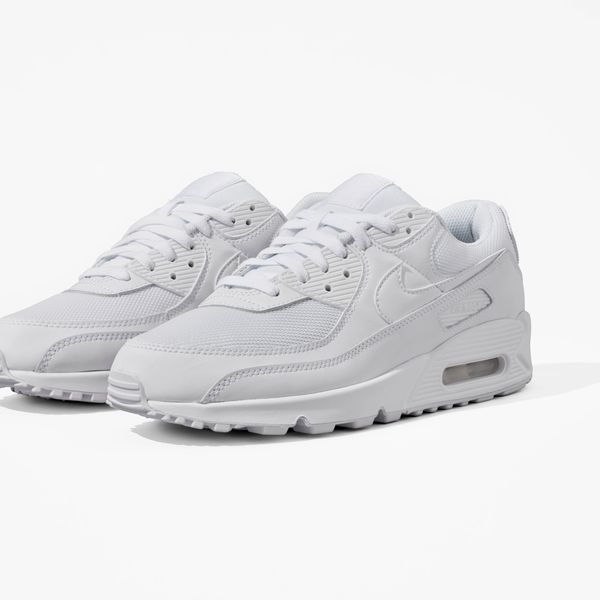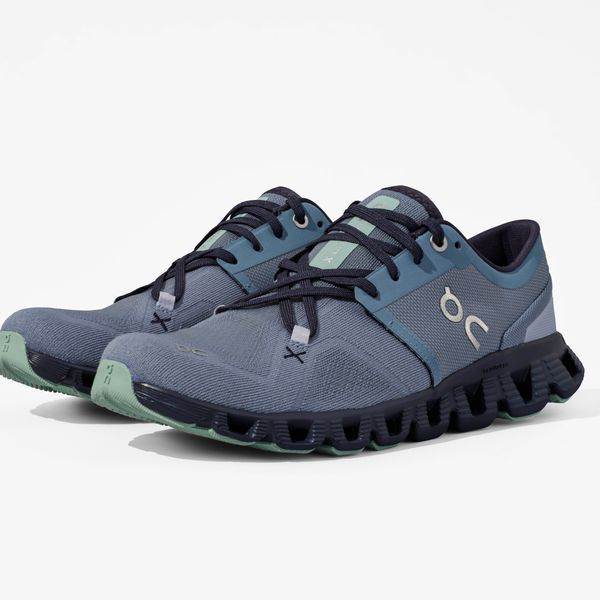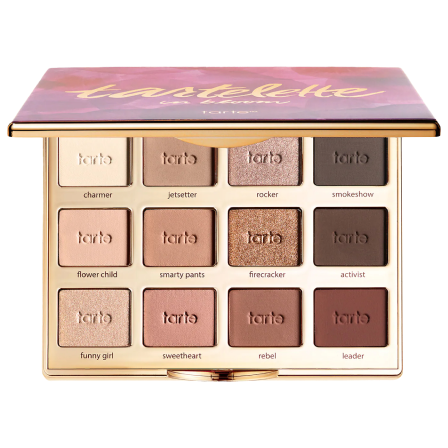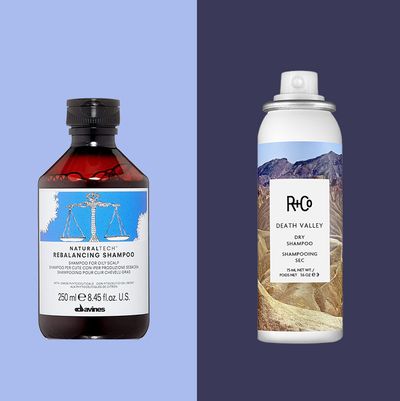
No matter your hair type, an oily scalp can weigh down your strands, a look that most people try to avoid. But shampooing constantly isn’t the answer either. Like oily skin, oily hair is a result of hyperactive sebaceous glands, which, aside from genetics and hormones, can be caused by the overuse of astringent shampoos and other styling products. “Though everyone’s initial reaction is to wash their hair at the sight of oil, truth is it’s best to wait,” says Eric Torneros, a stylist at the Karcher salon in Greenpoint. “The longer you can wait, the more your scalp will get used to not having to overproduce. Washing too much makes the scalp freak out and go into protection mode, producing more oil.”
“That is one of those myths we’ve been conditioned to believe: to have squeaky clean hair,” says Chelsey Pickthorn, owner of Pickthorn Salon in Bushwick, Brooklyn. “Instead, we should allow our natural oils to find their balance, and then they will really stop overproducing over time.” While it may seem counterintuitive (and impossible), one way to fight oily hair is by cutting back on how often you shampoo your hair. According to the experts we consulted, limiting washing your hair to one to three times a week is ideal if you’re trying to control oil production.
To help you choose the right product, we consulted five hairstylists about their favorite shampoos and washes for bringing your hair back to a less-greasy, more balanced state. While our experts recommended a range of products, they all agreed that the most effective shampoos are ones that can remove excess oil build-up without stripping hair of its natural oils. Pickthorn notes, however, that the process could take “anywhere from four to six weeks” and that the oil in your hair will get worse before it gets better. “You’re gonna go through a pretty crappy stage where it is just gonna try to get all the excess out, and then it will definitely reset itself.”
Best shampoos for oily hair
According to Pickthorn, factors like stress, lifestyle, and how often you color or otherwise process your hair can also affect how greasy it is. For those with more chronic issues, she recommends incorporating a rebalancing shampoo, like this one from Davines’s Naturaltech line, into your hair-care regimen. “It shouldn’t necessarily be something that you’re using every shampoo, but more as a treatment-based kind of situation,” she says. It contains lemon phytoceuticals, which she says is “basically vitamin C,” and that helps to rebalance the pH levels of your scalp by deep-cleaning excess oil without stripping your hair’s natural moisturizer. Matt King, hairstylist and director of education at Fox and Jane salon in Manhattan agrees, saying that Davines’s rebalancing shampoo “is a great option for people who are looking to handle an oily scalp without drying out their hair.” He also appreciates the fact that Davines uses natural ingredients as often as possible and sustainable packaging.
According to Stephanie Louis, owner of Stylebox Salon in Brooklyn, it’s “not so much how often you shampoo your hair, but with what.” For those with super oily hair, she recommends sticking with a once-a-week shampoo regimen using her go-to combination of Euforia’s Urgent Repair Shampoo, and Verb’s Reset Clarifying Shampoo. They’re “not too harsh, which can strip away the sebum from the scalp, causing the sebaceous glands to kick into overdrive and make more sebum, or too weak, so that they don’t really do much to clear any oil build-up.” She notes that they’re both primarily water-based cleansers, meaning they won’t add extra oil to your hair. Kyriakos also likes Verb and says that it works well on curly hair. “It adds a lot of shine and really helps control an oily scalp.”
The weight of your hair can also play a role in how greasy it can appear, according to hairstylist George Kyriakos at Honey Artists. “Very fine hair can be washed in the morning and look greasy and limp by mid-day,” he says. “Oily hair is a bit easier to conceal with thicker, coarser hair. You can get away with washing your hair every day, but could dry the scalp, causing excess dandruff.” In either case, “the more often you wash your hair, the more oil the scalp produces in order to compensate for the dryness from over-washing.” For fine hair, Kyriakos recommends “alternating between a regular foaming shampoo and a dry shampoo every couple of washes,” and for coarser hair, “washing every three to four days, rinsing with water, and perhaps rotating in a dry shampoo in between washes.” His go-to shampoo is Inoar’s Divine Curls Shampoo, which he says “doesn’t have the harsh detergents that most shampoos contain.” Although it’s meant for curly hair, he notes that it works on all hair textures. “It also doesn’t lather, which may take some getting used to, but your hair will feel clean and your scalp will thank you.”
“This is a cold-processed shampoo and conditioner that is just really nice and balanced,” says Pickthorn. “We get into these patterns and cycles of thinking, ‘Oh, my hair is oily, it’s flat, it’s this,’ and so then we go for a volume shampoo, or something for texture, but a lot of the time, volume shampoos can be very alcoholic or acidic, which basically roughs up the cuticle. You’re just compounding the problem.” Rich in antioxidants, it contains natural ingredients like ylang ylang, vetiver, rosemary, lavender, and amaranth oil that help protect your hair from damage. “I like what they’re doing with the product. It’s not too one-way or another,” she adds.
King says that when there’s a buildup of product in your scalp, its natural oils can’t spread through your hair. But washing it too often causes irritation to the scalp, which secretes more oil to protect itself. In addition to washing oily hair a couple of times a week, he suggests using a clarifying shampoo like this sulfate- and paraben-free one from Evo once a week to get excess product off the scalp. Even though it’s deep-cleaning, “it doesn’t feel like your hair is stripped after.” It also won’t affect your hair color if it’s processed, and it doesn’t require an intensive conditioner. King suggests following up with a dry shampoo, and also recommends Evo’s Therapist shampoo for when your hair needs moisturizer, or Mane Tamer if your hair is frizzy.
Pickthorn also recommends this sulfate- and paraben-free product from Iles Formula. “It has a root vegetable extract that basically buffs the actual cuticle of the hair,” she says, “balancing the scalp and stripping out any impurities and gunk.”
This silicone-free shampoo from Kérastase is specifically formulated for oily hair and roots. Kyriakos recommends it, saying, “This is a hypoallergenic shampoo that calms the scalp, reduces dryness, and promotes over all good scalp health.”
Here’s another recommendation from Kyriakos: “This Aveda Scalp Benefits works well on balancing your scalp’s pH, which can help reduce the overall production of oil.” It works by cleaning the hair down to the roots, removing excess sebum and other build-up.
Best washes for oily hair
Torneros recommends incorporating a wash or rinse into your weekly regimen. “Rinses cleanse the scalp without using detergent a.k.a. soap. They get the hair feeling clean but not fully stripped of all your natural oils,” he explains. His favorite washes for rebalancing oil production are both apple cider vinegar–based cleansers that, according to him, “help remove excess oil and product without over-stripping the hair of its natural oil, leaving hair clean and shiny but not overly dry.” (Vulture’s literary critic Molly Young is also a fan of Hairstory’s shampoo replacement.) “Though totally ditching shampoo isn’t for everyone, I think using this a few times in between shampoos is a great additive for excessively oil hair,” says Torneros. He suggests shampooing once a week and using a rinse two or three times throughout the week. “But if eventually you can fully let go of actual shampoo, even better. Eventually your scalp with acclimate and be less oily.” Writer Garret Munce is also a fan of dpHue’s rinse, saying that it’s his “go-to product when I feel a little too oily and need a little reset.”
Best dry shampoos for oily hair
Three of our experts — Kyriakos, Pickthorn, and King — recommend using a dry shampoo in between washes as a way to control oil production. They all like R+Co’s Death Valley dry shampoo, which Pickthorn says “absorbs the oil on the scalp and hair. It smells refreshing and sprays vigorously.” Kyriakos agrees, saying that it “smells great and gives you a lot of texture and volume.” Still, they all have slightly different ways of incorporating a dry shampoo into a weekly regimen. Kyriakos, for instance, suggests switching between a regular shampoo and dry shampoo during the week. “On the days you use dry shampoo, simply rinse your hair with water. Once your hair is dry, use the dry shampoo to remove excess oils,” he says. King suggests using Death Valley the day you wash your hair, as its great for immediately counteracting any oil that could show up.
For Pickthorn, it’s a little more complicated. “I go back and forth [about whether to use dry shampoo], because some products tend to use a ton of alcohols, and it’s just masking the problem, but I really love Klorane. It’s just super light and doesn’t have a lot of product to it. It’s not too powdery, so you’re not suffocating your scalp,” she says. She suggests using it the second day of the week: “Shampoo the first day, go through the whole night, and then apply the next morning. Ideally, you don’t want to keep reapplying in hopes that it’ll hold through.” She also recommends using your fingertips to disperse it around your scalp. Pickthorn also likes Davines’s Hair Refresher.
Best brush for oily hair
“Oily hair means oily scalp,” says King. “’Brush your hair every night’ is my No. 1 tip.” He recommends using Mason Pearson’s boar bristle nylon combo brush from your scalp to the ends of your hair “to drag the oil through hair and condition it so that the oil is not sitting at the scalp.” Kyriakos also recommends using a Mason Pearson brush, but to brush dry shampoo through your hair once it is applied.
The Strategist is designed to surface the most useful, expert recommendations for things to buy across the vast e-commerce landscape. Some of our latest conquests include the best acne treatments, rolling luggage, pillows for side sleepers, natural anxiety remedies, and bath towels. We update links when possible, but note that deals can expire and all prices are subject to change.
